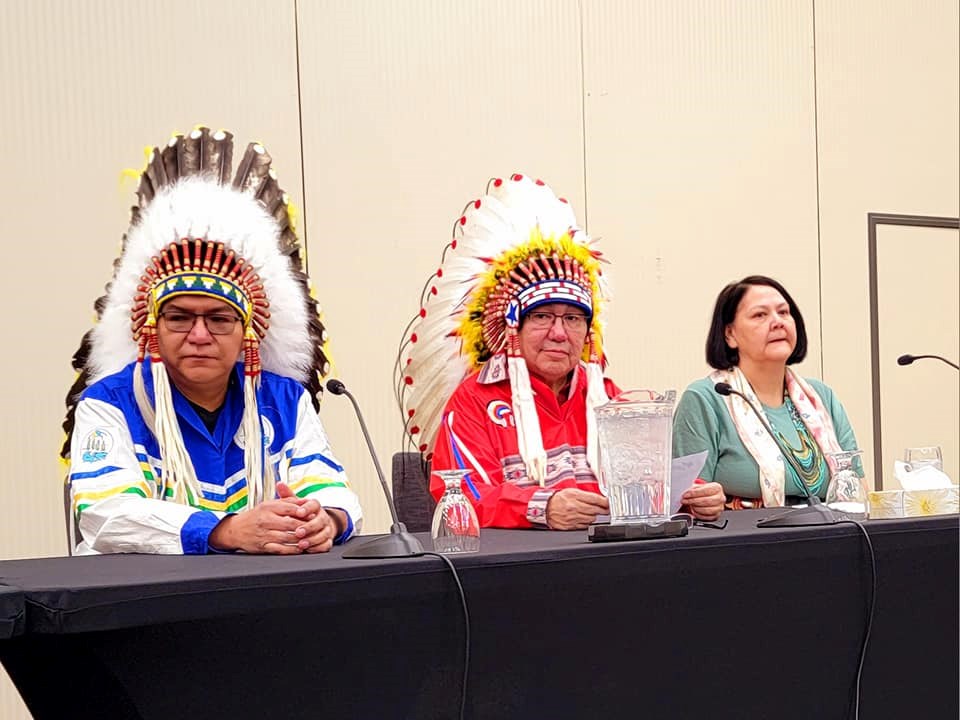The chief of a remote Northern Manitoba First Nation where two 14-year-old girls froze to death March 1 held a press conference March 10 asking for the media to give his community and its residents time to grieve the loss.
St. Theresa Point First Nation Chief Elvin Flett said at a press conference in Winnipeg that residents are struggling with their own unanswered questions and that the death of the girls in the close-knit community is hard enough without journalists contacting the First Nation and relatives of the two girls seeking specific details.
“The needless and premature deaths of our youth, as well as our community is a priority at this particular time; therefore, I am requesting all media outlets to respect the privacy of the bereaved families and community at this time,” Flett said in a March 9 press release.
A viewing will be held in Winnipeg early next week at the funeral home where the girls’ bodies were taken before they are flown back to St. Theresa Point for a funeral, Flett said.
“Once the families and community have completed the final resting of these two young girls, the chief and council, along with other leaders will provide further comprehensive details,” he said. “Not only on details but on aggressive measures and long-term solutions to prevent any further needless and premature deaths of our youth.”
Anishininew Okimawin - Island Lake Grand Council Grand Chief Scott Harper said at Friday’s press conference that the deaths not only impact St. Theresa Point but also the other three Island Lake area first nations.
“We are all related,” he said, noting that some of the crisis response workers that the council dispatched to provide assistance in St. Theresa Point are directly related to the girls involved and their families.
First Nations in Northern Manitoba barely have time to recover from one tragedy before another one strikes, Harper said.
“It’s one crisis after another and it’s very sad,” said Harper.
The fact that such tragedies even happen at all in Canada in 2023 is appalling, said Assembly of Manitoba Chiefs Grand Chief Cathy Merrick, pointing to poverty as the underlying factor contributing to their frequency.
“That is why we find our children dead on the roads of our First Nation communities,” she said. “Our people should not be dying.”
Merrick also expressed despair that the sharing of tragedies over and over again doesn’t seem to make any difference.
“I don’t know who is listening to us,” she said, noting that First Nations and their members are aware of what their communities need but are usually unable to obtain it. “Communities here for many, many years have called asked the government to provide them with treatment centres with no success. We know very well that our people are the ones that need the help most in our territories. We have to change the way that we think about First Nations people in this country.”




